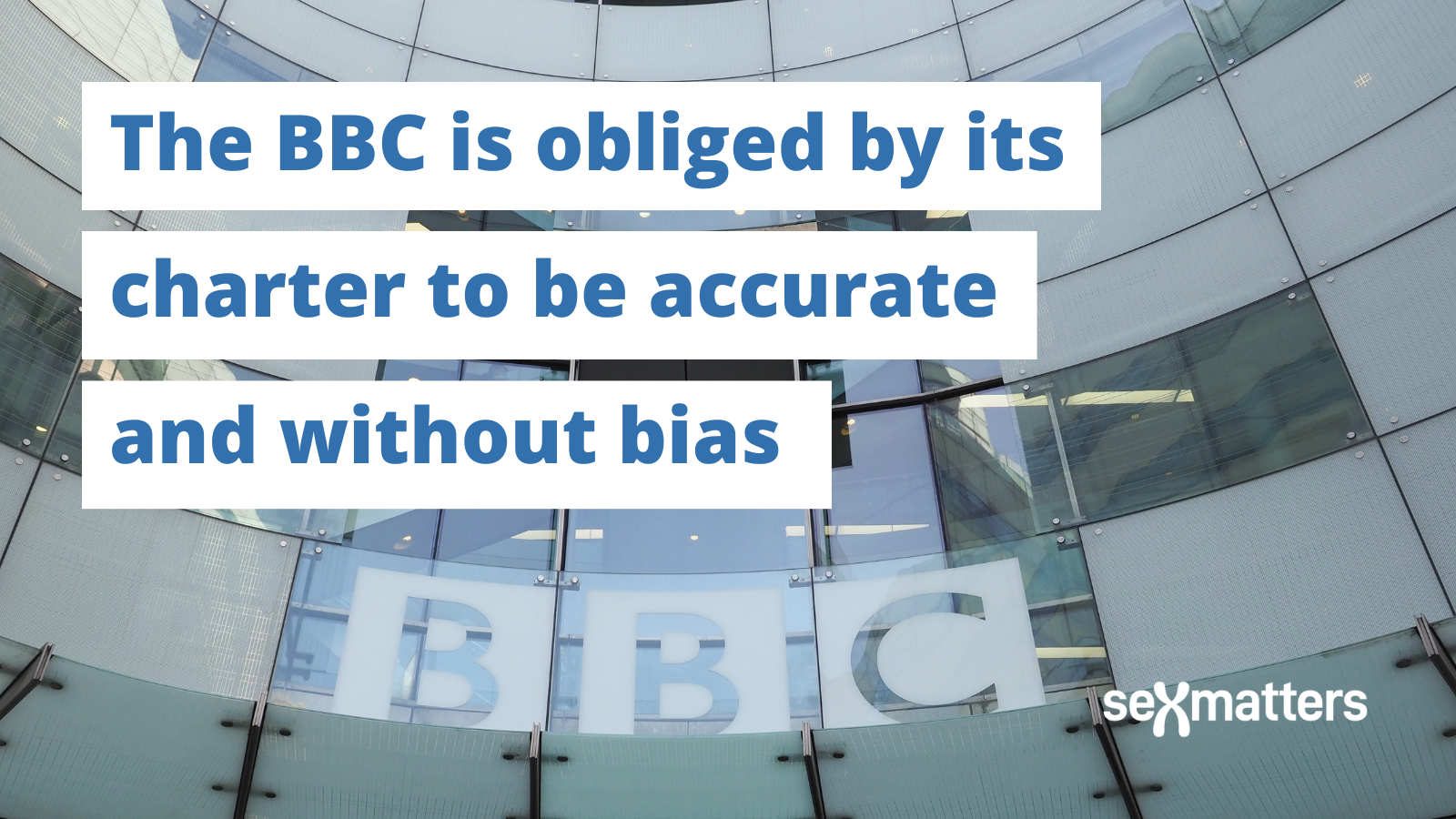Bias at the BBC

What’s the issue?
The BBC’s director of complaints has ruled that the presenter Justin Webb broke the BBC’s rules on impartiality when he commented, in a discussion about a women’s chess tournament on Radio 4’s Today programme, that “trans women” are male.
This is shocking behaviour from the BBC: the national broadcaster, funded by public money and obliged by its charter to be accurate and without bias.
The BBC ruling said that Webb “gave the impression of endorsing one viewpoint in a highly controversial area”. This is extraordinary. Some people think the earth is flat, but to say that it is round is not an endorsement of one viewpoint – it’s a statement of fact. “Trans women” by definition are people born male who now identify as women. Since sex cannot change, they remain male. Polling has shown that a third of people are confused about what “trans woman” means, so it was helpful and appropriate of Webb to explain. If this is not allowed, people will be confused and potentially misled by BBC news stories.
This isn’t the first time Webb has been criticised for pointing out that sex is not the same as gender identity. Last summer he asked Liberal Democrat leader Ed Davey if there should “be spaces where biological males cannot go” in reference to trans-identifying males. He also got into trouble for saying that Professor Kathleen Stock had been “falsely” accused of transphobia by students at Sussex University.
It’s not just the BBC
Almost without exception, media reports in the past fortnight of the conviction and then sentencing of murderer Scarlet Blake referred to Blake as a woman, mostly without pointing out that he was male or even that he was transgender. (The Daily Telegraph was a notable exception.) The standard media excuse for calling male perpetrators women is that the court referred to them as such. In the Blake case, the judge in court referred to Blake’s sex at birth and transgender identity.
The media regulator IPSO has recently revised its guidance on reporting sex and gender, but it seems that nothing much has changed in reporting. Male crimes are still being described (and recorded by the police and the criminal justice system) as committed by women.
What happens next?
Until there is a policy change, or BBC senior executives find the moral courage to allow honest reporting about this issue, nothing will change. Webb has had a telling-off and now has to be careful what he says on the radio.
There is pressure from both sides on this because we all know how important it is for news – especially crime reporting – to be reported accurately, and in clear factual language that everyone can understand. Forcing presenters to use the language of gender ideology means that some people won’t be able to decode the story. It hides the facts.
Sex Matters and other campaign groups have been working on this for a while. We won’t stop until we get honest, accurate reporting on this issue.
What you can do
Complaints are taken seriously, if only because they create work for the organisation receiving them. The BBC compiles a daily report of complaints received by number and nature. Bias is considered one of the most serious failures, so it registers when a lot of complaints are received about any one report.
- Complain to the BBC when you see a BBC story you think is biased or inaccurate. Start with the Scarlet Blake story and Richard Garside’s thread on Twitter. Don’t give up if you’re fobbed off at stage one. Push on to stage two and then the Executive Complaints Unit.
- Complain to IPSO if you see reporting in newspapers or news websites that is biased or inaccurate. You may have to complain to the publication directly first; it’s usually easy to find an email address on its website where you can send a complaint.
- Send your local newspaper, radio station or news website a copy of our media guide, which is explained here.
- Complain to the other broadcasters too (here are the contacts for Sky News, ITV and Channel 4).
Use our bad media watch reporting tool to let us know when you see biased reports and find out more about making a complaint.
